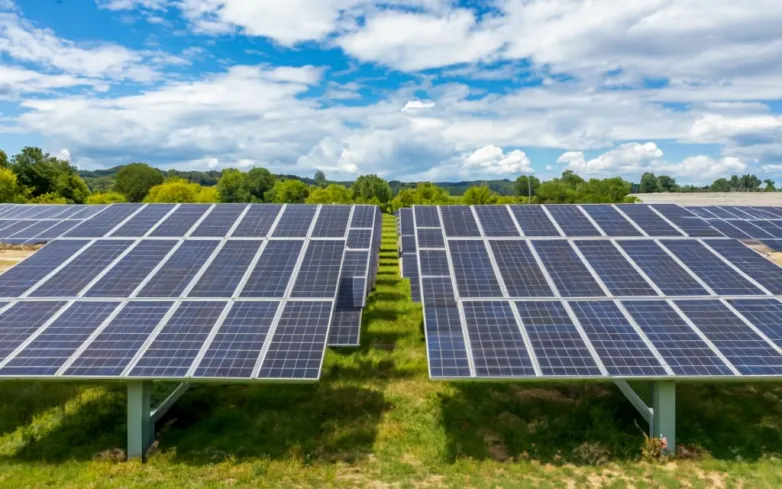Revolutionizing Solar Power: Lightweight Panels Transforming the Industry
- Apollo Power revolutionizes solar energy with lightweight, flexible panels that can be placed anywhere. From car roofs to agricultural greenhouses, their innovative products are changing the game.

Israeli startup Apollo Power has developed lightweight, flexible solar panels that can be placed on any surface, including car roofs. Companies such as Amazon, Volkswagen, and Hyundai have already partnered with Apollo Power. The panels are being used to cover the roof of an Amazon logistics center in France and to generate clean electricity for charging electric bikes and scooters. Volkswagen has placed a €33 million order with Apollo for 10 years' worth of the flexible film to charge their new electric vans. Apollo Power has built the largest flexible solar panel factory in the world in Israel's Carmel region and has received certification to connect to the electrical grid in many countries. The panels are also being integrated into the hoods of electric cars and have won awards for their innovation.
Apollo Power's panels are lightweight and durable, making them suitable for use on roofs that have load limits and cannot support standard glass solar panels. They can also be placed on the plastic roofs of agricultural greenhouses, enabling the same plot of land to produce food and sustainable energy. The company also produces solar pavements and floating solar panels for reservoirs. Apollo Power's products have been sold to fleets of buses and trucks in several countries, and they have been used to charge soldiers' phones and drones in combat zones. The panels have a 25-year performance guarantee and reach 17.5% efficiency, making them comparable to glass panels in terms of durability and efficiency.
What are the features and applications of Apollo Power's lightweight, flexible solar panels?
- Chonnam National University's perovskite-organic hybrid tandem solar cell achieved an efficiency of X%.
- The perovskite-organic hybrid tandem solar cell technology combines the advantages of both perovskite and organic solar cells.
- Perovskite solar cells have gained attention in recent years due to their high efficiency potential and low production costs.
- Organic solar cells, on the other hand, are known for their flexibility and lightweight properties.
- By combining these two technologies, Chonnam National University's tandem solar cell aims to achieve higher efficiency and improved stability.
- The efficiency achieved by the tandem solar cell is a significant milestone in the development of renewable energy technologies.
- Higher efficiency means that more sunlight can be converted into electricity, leading to increased energy generation.
- The use of perovskite-organic hybrid tandem solar cells can potentially enhance the adoption of solar energy in various applications, including residential, commercial, and industrial sectors.
- The lightweight and flexible nature of the tandem solar cells makes them suitable for installation on various surfaces, including car roofs, buildings, and even wearable devices.
- The integration of tandem solar cells into different products and structures can enable the generation of clean and sustainable energy in diverse settings.
- The development of efficient and durable solar panels, such as Chonnam National University's perovskite-organic hybrid tandem solar cell, contributes to the overall growth and advancement of the renewable energy industry.
Also read
